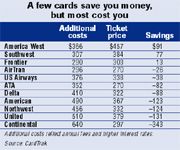- Revenue Cycle Management
- COVID-19
- Reimbursement
- Diabetes Awareness Month
- Risk Management
- Patient Retention
- Staffing
- Medical Economics® 100th Anniversary
- Coding and documentation
- Business of Endocrinology
- Telehealth
- Physicians Financial News
- Cybersecurity
- Cardiovascular Clinical Consult
- Locum Tenens, brought to you by LocumLife®
- Weight Management
- Business of Women's Health
- Practice Efficiency
- Finance and Wealth
- EHRs
- Remote Patient Monitoring
- Sponsored Webinars
- Medical Technology
- Billing and collections
- Acute Pain Management
- Exclusive Content
- Value-based Care
- Business of Pediatrics
- Concierge Medicine 2.0 by Castle Connolly Private Health Partners
- Practice Growth
- Concierge Medicine
- Business of Cardiology
- Implementing the Topcon Ocular Telehealth Platform
- Malpractice
- Influenza
- Sexual Health
- Chronic Conditions
- Technology
- Legal and Policy
- Money
- Opinion
- Vaccines
- Practice Management
- Patient Relations
- Careers
UPDATE
On finance and practice

How much those free miles cost Charging up an airline-sponsored credit card to get enough miles for a free coast-to-coast round trip will cost you an average of $70 more than if you just bought the ticket, says CardTrak, a research company. Cardholders would save money with only three airlines-America West, Frontier, and Southwest.
At an average of 14.4 percent, the interest rate charged by airline cards is about 6 percentage points higher than the average for plain vanilla bankcards, says CardTrak. Airline cards also carry annual fees from $39 to $65, while many other credit cards carry no annual fee.

A safety feature worth getting Electronic stability control systems reduced single vehicle crashes in sport utility vehicles by 67 percent and in passenger cars by 35 percent, says a study by the National Highway Traffic Safety Administration. The technology combines antilock brakes, traction control, and other systems to improve vehicle stability. The systems detect when a driver is about to lose control and can automatically apply the brakes, reduce engine power to avoid accidents, or both. Stability control systems are available in about 7 percent of passenger vehicles, including models from BMW, Buick, Cadillac, Lexus, Mercedes-Benz, and Toyota.
Hurricanes could soak car buyers Your next used car could have been damaged by flood waters from the hurricanes that slammed through the Southeast this year, warn consumer experts. Thousands of cars that were flooded in the storms could soon start showing up in car lots anywhere in the country, says North Carolina's attorney general. By state law, any extensive water damage should be marked on the vehicle's title. But unscrupulous sellers could hide the damage by "laundering" the title work. To make sure you're not buying damaged property, get a vehicle history report from Carfax ( http://www.carfax.com) or AutoCheck ( http://www.autocheck.com) for $19.99 each. Or, you can get an unlimited number of reports from either service for $24.99. You should also check the car carefully for signs of rust, mud, mildew, or other water damage, says the Better Business Bureau.
